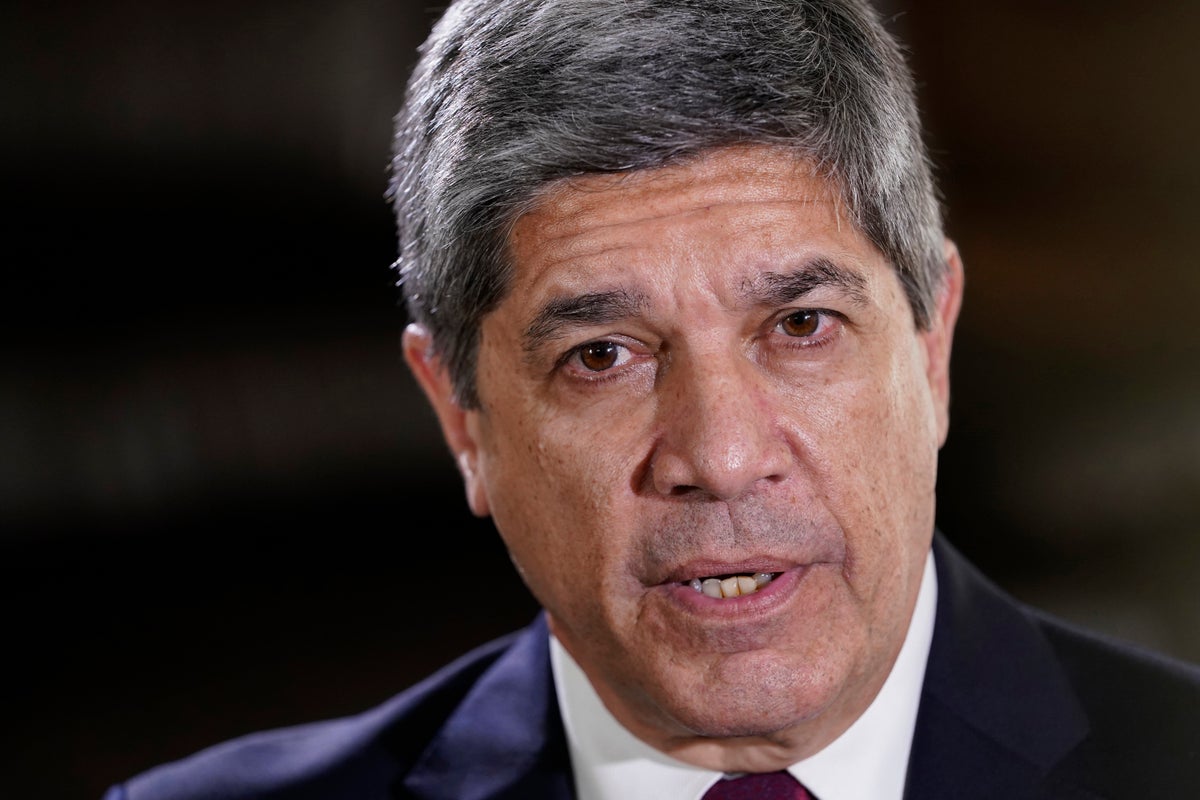
Cuba’s deputy foreign minister accused the Biden administration of acting immorally, illegitimately and unfairly by keeping Cuba on the list of state sponsors of terrorism, claiming it has been a victim of state-sponsored terrorism by the United States for more than 60 years.
Carlos Fernandez de Cossio said in an interview with The Associated Press that maintaining Cuba on the State Department blacklist with North Korea, Iran and Syria is “an easy way to punish Cuba with the overall aim of trying to make Cuba what it is not — to make Cuba a failed state.”
“The U.S. unfortunately pays no price for doing something that is illegitimate, unsustainable and immoral,” he said. “And even though, speaking with government officials, they find no reason why Cuba should be in the list, they claim that it is politically difficult for them.”
The United States imposed an economic embargo on Cuba in 1960 following the revolution led by Fidel Castro and the nationalization of properties belonging to U.S. citizens and corporations.
Removing Cuba from the blacklist had been one of then-President Barack Obama’s main foreign policy achievements as he sought better relations with the Caribbean island, an effort endorsed by Biden as his vice president.
Days before Biden was inaugurated as president, then-President Donald Trump’s administration redesignated Cuba as a “state sponsor of terrorism,” imposing new sanctions. During his campaign, Biden promised to renew relations with the communist-governed island, but he has made no move to do so.
Fernandez said the “pretext” then-Secretary of State Mike Pompeo gave was the presence in Cuba of representatives of Colombia's last guerrilla group, the National Liberation Army, known as the ELN. He said Cuba didn’t invite them but responded to a request from the Colombian government to host peace talks with the group in Havana.
He didn’t mention that Pompeo also cited Cuba’s continued harboring of U.S. fugitives and its support for Venezuelan leader Nicolás Maduro as reasons.
Fernandez said U.S. officials describing delisting as a “politically difficult” decision is “an immoral excuse, because as a result of this designation, the Cuban economy is suffering an additional pain on the one already imposed by the blockade.”
He explained that anyone engaging economically or financially with a country on the list faces the possibility of being punished by the United States, and that because of Cuba’s designation over 30 financial and banking institutions interrupted their relationships with the country.
“There is huge economic pressure,” Fernandez said, explaining that for the past six years the country has had no sources of financing or development credit, and the U.S. has tried to deprive Cuba of fuel so it has to pay a 15-30% premium because of the risk that the few sellers take.
The country is also still suffering from the impact of COVID-19 and tourism, especially from Canada and the European Union, which is an important source of income, he said.
Nonetheless, the minister said Cuba hopes the economy will grow by 2.5% this year.
“So the country has not collapsed,” he said, though there are serious difficulties in terms of electricity, power and fuel.
“We think we could come out of it,” Fernandez said. “We’ve done it in the past, but it’s going to take a lot of effort. It would be much easier if the entire blockade did not exist, or at least a few flexibilities were introduced, which the Biden administration has promised but has not introduced.”
He expressed hope that the Biden administration will “do the right thing” and lift the terrorism designation because “it’s totally unfair, it’s totally unjustified, and it’s totally immoral.”
“There is no way to morally sustain or justify punishing several generations of Cubans, or the whole population of Cuba, for over six decades with the aim of making the country a failed state,” Fernandez said.
He cited a State Department document from April 1960 that describes the aim of U.S. policy to depress Cuba’s standard of living, provoke hunger and despair, and force the population to rebel against the government.
The Cuban minister said the government had no answer as to why Biden didn’t follow Obama’s opening to Cuba.
“The simple answer they give is Biden is not alone,” he said. “That, in my opinion, is an excuse for a way out.”
Fernandez led the Cuban delegation to talks in Washington in April on migration that he said focused on reviving the 1994 agreement on the U.S. issuing 20,000 visas for Cubans every year. He said there was progress, and perhaps the target can be reached later this year.
Fernandez said the mass exodus of Cubans this year is the result of “a perfect equation” — the U.S. not complying with the 20,000 visas per year since 2017 and people wanting to migrate, the incentive for people to migrate by irregular means including by using smugglers because close to 90% of Cubans who reach the U.S. are accepted, and the difficult economic situation in Cuba which the U.S. encourages.







